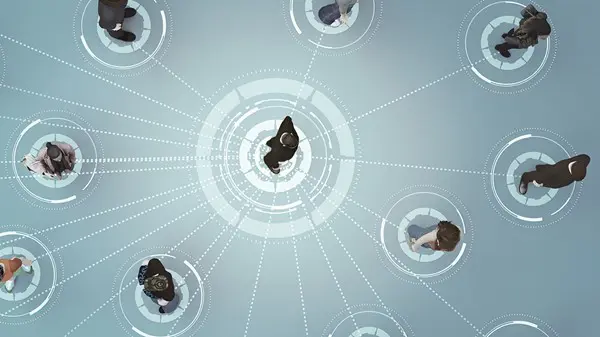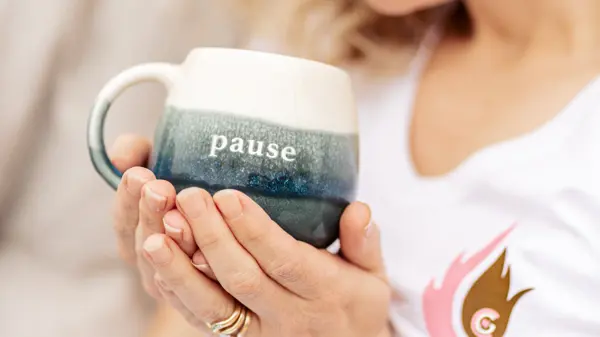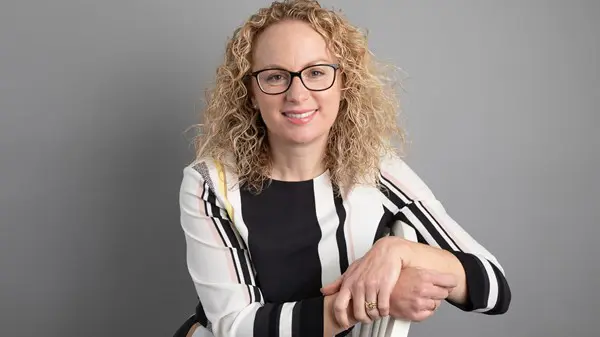Mental Health Awareness Week: A Q & A with Pete Riddleston
Pete Riddleston is LawNet's Learning & Quality Director. Here, he gives a personal insight for Mental Health Awareness Week.
What mental health problems have you had and how long have you had these?
I’ve struggled with anxiety and depression on and off for most of my adult life. I’m pleased to say that my mental health has been pretty stable for the last couple of years.
How has this affected you?
Eventually, mental health problems reach into every area of your life. I find I steadily lose interest and enthusiasm for things I normally enjoy, can get tired and irritable much more easily and find it much more difficult to spend time with people. My instinct is to isolate myself because I believe I’m no longer someone that people wouldn’t ever want to be around. My emotions tend to disappear too. A lot of people think that depression is about feeling really sad but I find I stop feeling anything at all and just feel numb all the time. I’ve also suffered with anxiety and have found this very frightening. I’ve had panic attacks and when my anxiety has been particularly bad it is though I am constantly in fight or flight mode even when there is absolutely no reason whatsoever to feel like this.
How has this affected your work?
I have had to take some time off on a couple of occasions and there’s no doubt that it can make work very difficult. When I worked as a lawyer and was struggling with depression, I found it really difficult to concentrate and my attention to detail slipped very badly. I’ve gone through periods when my confidence and self worth has fallen apart and it is really hard to work effectively during those times. That’s when communication becomes really important and why working in an environment where you can put your hand up and say that you need some help and support is vital. To be able to do that, you need to be sure that you won’t be judged or isolated because even when you’re confident that you’ll receive a supportive response, it is still really difficult to say what is going on.
 |
You said that your mental health has been stable for a couple of years. Why is this?
I’d always wanted to run the London Marathon and applied to run this in 2017. I was lucky to get a charity place through Mind. The whole experience of training for and running the race was really tough but incredibly inspiring. I found that I loved running and haven’t looked back since. Through Mind, I’ve met some wonderful people and their support has really helped me to find purpose and talk much more openly about my mental health. I’ve now run 4 marathons and 9 half marathons. Every time I run a race, I wear my mind t shirt with huge pride. There are more races in the pipeline, starting with my first ultra marathon, Race to the Tower, on June 8th.
As well as running, what has helped?
Learning what can trigger a dip in my mental health has been really helpful. Tiredness can cause me problems so I take a lot of care to make sure I’m getting enough sleep. I also try to maintain a good diet and not drink much alcohol although my love of cake hasn’t gone so I certainly allow myself a few treats. I work on the basis that running allows me the odd slice of cake here and there. One of the biggest things has been having a bit more confidence to talk about how I’m feeling. It’s not always easy but it makes a massive difference and it means that I’m far less likely to bottle things up in a way that means I steadily feel worse and worse.
What are your hopes for Mental Health Awareness Week?
It’s been great to see the week getting so much press and social media attention. My hope is that this leads to more people having conversations about mental health and that these conversations will be a real catalyst for change. There is still significant stigma around mental health so we need to make sure weeks like this are a lot more than a hashtag and help us to change the way we see and talk about mental health.
What is LawNet doing to help its member firms support the mental health of their staff?
The results of the Junior Lawyers Division’s resilience and wellbeing survey highlighted the issues that lawyers are experiencing. We’ve been talking to our members about what will help them and the sorts of issues they are seeing in their firms. We’ve also partnered with LawCare, the charity that supports good mental health and wellbeing in the legal profession. We’ll be doing some training sessions for members to raise awareness of mental illness issues in the legal profession, providing access to mental health first aider training and also signposting them to resources and information about mental illness, wellbeing and how to get help. This is only the start and we’ll be holding regular roundtable discussions with our members to develop this support and training further. Ultimately, we recognise that this is a long term issue and that there is a need for a change of culture in the profession with regard to mental illness.








